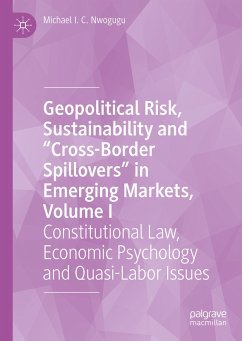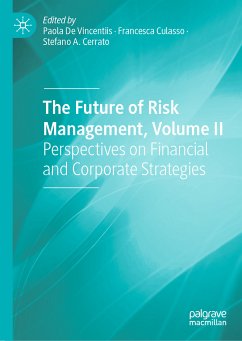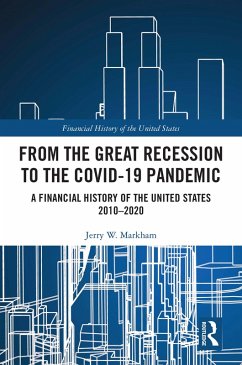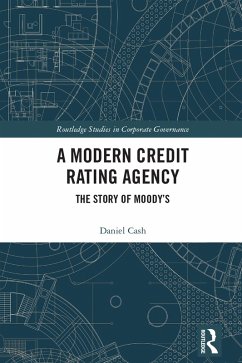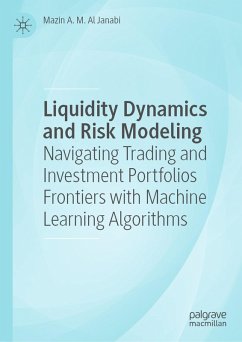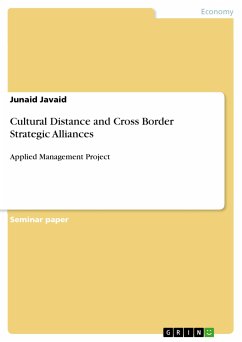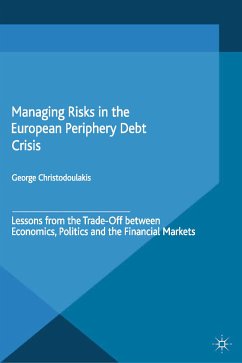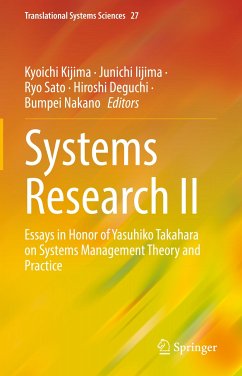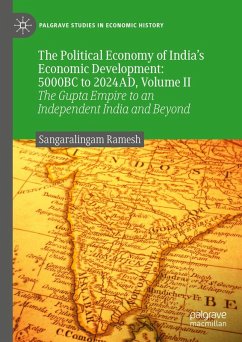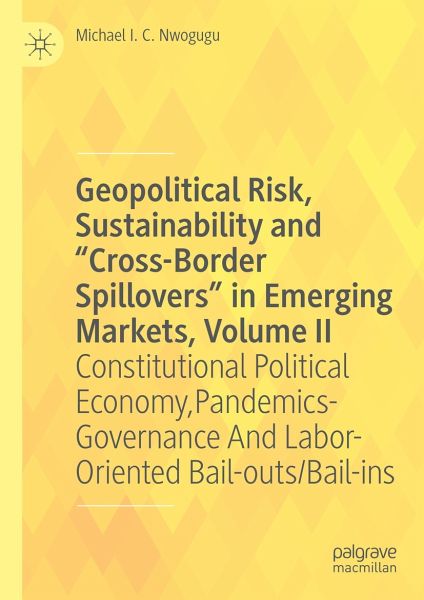
Geopolitical Risk, Sustainability and "Cross-Border Spillovers" in Emerging Markets, Volume II (eBook, PDF)
Constitutional Political Economy, Pandemics-Governance And Labor-Oriented Bail-outs/Bail-ins
Versandkostenfrei!
Sofort per Download lieferbar
72,95 €
inkl. MwSt.
Weitere Ausgaben:

PAYBACK Punkte
36 °P sammeln!
Many emerging market countries are increasingly affected by their "informal economies", geopolitical risks, U.S. dollar dynamics, legal/regulatory institutions, preferential trade agreements (PTAs), social networks, international labor dynamics, cross-border spillovers (from developed countries to emerging markets; including Regulatory Spillovers), constitutional political economy crises (such as those that occurred in Europe, Asia, Africa and the U.S. during 2007-2020, including the COVID-19 pandemic) and inefficient microfinance. Due to these phenomena, enforcement commitment, compliance cos...
Many emerging market countries are increasingly affected by their "informal economies", geopolitical risks, U.S. dollar dynamics, legal/regulatory institutions, preferential trade agreements (PTAs), social networks, international labor dynamics, cross-border spillovers (from developed countries to emerging markets; including Regulatory Spillovers), constitutional political economy crises (such as those that occurred in Europe, Asia, Africa and the U.S. during 2007-2020, including the COVID-19 pandemic) and inefficient microfinance. Due to these phenomena, enforcement commitment, compliance costs, sustainable growth, quality-of-life, political stability, financial stability, household economics, inequality and international trade outcomes can vary drastically across emerging markets countries. The COVID-19 pandemic has exposed many problems inherent in political systems, economic policy, Sustainability Policy, Social Welfare systems and governments' emergency powers during pandemics/epidemics and economic/financial crisis.
These foregoing issues are the geopolitical risk context of this second volume. This book also introduces complex systems theories of the "Beliefs" of government and corporate actors. Thus, this book can help researchers to develop better Artificial Intelligence, Complex Systems and decision-theory models of geopolitical risk, public policy, asset-pricing, corporate strategy, labor markets and international capital flows, all of which can be critical decision factors for investment managers, corporate executives and government officials.
Michael I. C. Nwogugu is an author, serial entrepreneur and consultant who has held senior management, Board of Director and Advisory Board Member positions in companies in the U.S., Barbados, France, India and Nigeria. Mr. Nwogugu has written eight books: Risk In the Global Real Estate Market (2012); Illegal File-sharing Networks, Digital Goods Pricing And Decision Analysis (2016); Anomalies In Net Present Value, Returns And Polynomials; And Regret Theory In Decision-Making (2017); Indices, Index Funds And ETFs - Exploring HCI, Nonlinear Risk And Homomorphisms (2019); Complex Systems, Multi-Sided Incentives And Risk Perception In Organizations (2019); Earnings Management, Fintech-Driven Incentives and Sustainable Growth: On Complex Systems, Legal and Mechanism Design Factors (2020) and Complex Systems and Sustainability in the Global Auditing, Consulting, and Credit Rating Agency Industries (2021). Mr. Nwogugu's research articles have been cited in more than 20 top science journals. Mr. Nwogugu earned degrees from the University of Nigeria (Nigeria); City College of New York (USA); and Columbia University's Graduate Business School (USA).
These foregoing issues are the geopolitical risk context of this second volume. This book also introduces complex systems theories of the "Beliefs" of government and corporate actors. Thus, this book can help researchers to develop better Artificial Intelligence, Complex Systems and decision-theory models of geopolitical risk, public policy, asset-pricing, corporate strategy, labor markets and international capital flows, all of which can be critical decision factors for investment managers, corporate executives and government officials.
Michael I. C. Nwogugu is an author, serial entrepreneur and consultant who has held senior management, Board of Director and Advisory Board Member positions in companies in the U.S., Barbados, France, India and Nigeria. Mr. Nwogugu has written eight books: Risk In the Global Real Estate Market (2012); Illegal File-sharing Networks, Digital Goods Pricing And Decision Analysis (2016); Anomalies In Net Present Value, Returns And Polynomials; And Regret Theory In Decision-Making (2017); Indices, Index Funds And ETFs - Exploring HCI, Nonlinear Risk And Homomorphisms (2019); Complex Systems, Multi-Sided Incentives And Risk Perception In Organizations (2019); Earnings Management, Fintech-Driven Incentives and Sustainable Growth: On Complex Systems, Legal and Mechanism Design Factors (2020) and Complex Systems and Sustainability in the Global Auditing, Consulting, and Credit Rating Agency Industries (2021). Mr. Nwogugu's research articles have been cited in more than 20 top science journals. Mr. Nwogugu earned degrees from the University of Nigeria (Nigeria); City College of New York (USA); and Columbia University's Graduate Business School (USA).
Dieser Download kann aus rechtlichen Gründen nur mit Rechnungsadresse in A, B, BG, CY, CZ, D, DK, EW, E, FIN, F, GR, HR, H, IRL, I, LT, L, LR, M, NL, PL, P, R, S, SLO, SK ausgeliefert werden.



